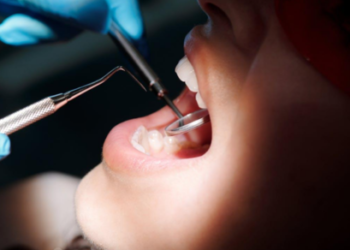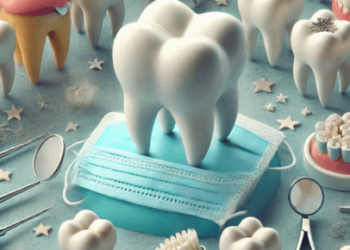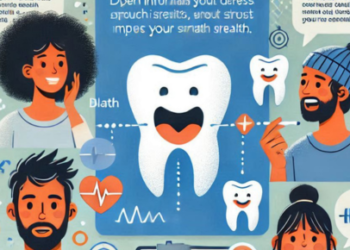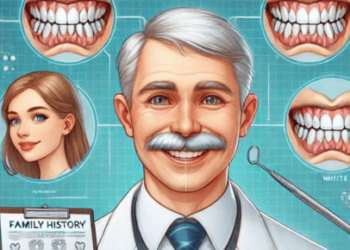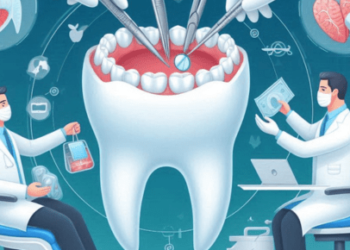Ensuring your child’s oral health is fundamental to their overall well-being. One aspect of dental care that sometimes surfaces for young ones is the need for dental crowns. But what exactly are these crowns, and when do they become a necessity? This blog post by Dentistry at The Grove aims to demystify dental crowns for kids, providing you with a comprehensive understanding of why they might be needed and how they can benefit your child.
What Are Dental Crowns for Kids?
Dental crowns are custom-made caps that fit over a tooth to restore its shape, size, strength, and appearance. In pediatric dentistry, these crowns play a crucial role in protecting young teeth that may be compromised by decay or injury.
Types of Dental Crowns for Children
There are several types of dental crowns available for children, each with its own material and purpose. Stainless steel crowns are commonly used for their durability and cost-effectiveness, especially on molars. Composite strip crowns offer a more natural look, ideal for front teeth, while zirconia crowns provide a strong, aesthetically pleasing option. Your pediatric dentist will recommend the best type based on your child’s specific needs.
How Crowns Are Placed and Their Lifespan
The placement of crowns involves a straightforward procedure where the dentist reshapes the affected tooth, takes an impression, and then fits the customized crown. The lifespan of these crowns depends on several factors, including the child’s oral habits and hygiene, but generally, they can last for several years, serving as a robust barrier against further damage.
When Are Dental Crowns Necessary for Kids?
Understanding when dental crowns are necessary can help parents make informed decisions about their child’s oral health.
Common Reasons for Dental Crowns
Children might need dental crowns for a variety of reasons, including extensive tooth decay, after a root canal treatment, or to repair damaged teeth from accidents. Early intervention is often critical to prevent complications and ensure the tooth’s functionality.
Dental Conditions Requiring Crowns
Certain dental conditions might necessitate the use of crowns. These include severe cavities that cannot be managed by fillings alone, teeth that are cracked or worn down, and congenital enamel defects. Recognizing these issues early on can lead to more effective treatment options.
Importance of Early Diagnosis and Treatment
Early diagnosis and treatment are pivotal in managing dental health issues that could necessitate crowns. Regular dental check-ups allow for timely detection of problems, enabling prompt intervention that can save your child from pain and more complex procedures later.
Benefits of Dental Crowns for Children
Dental crowns offer numerous advantages that can significantly improve your child’s oral health.
Advantages of Crowns for Kids’ Oral Health
Crowns for kids provide a protective layer over vulnerable teeth, preventing further decay and safeguarding them from everyday wear and tear. They also help preserve the natural tooth beneath, reducing the likelihood of extraction.
Preventing Further Damage
Once a dental crown is in place, it acts as a shield that prevents harmful bacteria from penetrating the tooth, thereby averting additional damage or decay. This protective feature is especially beneficial in maintaining the integrity of milk teeth, which play a role in holding space for future permanent teeth.
Enhancing Functionality and Aesthetics
Beyond protection, dental crowns enhance the functionality and appearance of your child’s smile. They restore the ability to chew properly and provide a uniform look, boosting your child’s confidence in their smile.
The Procedure: What to Expect
Understanding the dental crown procedure can help calm both your and your child’s nerves.
Step-by-Step Explanation
The process typically begins with numbing the area around the affected tooth. The dentist then removes any decay and reshapes the tooth for crown fitting. An impression is taken to design the custom crown, which is placed over the tooth once it’s ready.
Preparing Your Child for the Procedure
Preparation is key to ensuring a smooth experience. Discuss the procedure with your child in simple terms, emphasizing that it’s a step to make their tooth strong again. Practicing relaxation techniques, like deep breathing, can also be beneficial.
Post-Treatment Care
After the procedure, it’s crucial to follow the dentist’s instructions for care. This may include avoiding sticky foods initially and maintaining excellent oral hygiene to ensure the crown stays in great condition.
Caring for Your Child’s Dental Crowns
Proper care is essential for the longevity of dental crowns in kids.
Maintenance Tips for Longevity
Encourage your child to brush twice daily with fluoride toothpaste and floss regularly. Scheduling routine dental check-ups will also help monitor the crown’s condition and address any issues early.
Importance of a Good Oral Hygiene Routine
A robust oral hygiene routine helps maintain the health of not only the crowned tooth but the entire mouth. Developing these habits early on sets the foundation for lifelong dental health.
Foods and Habits to Avoid
Certain foods and habits can compromise the integrity of a dental crown. Encourage your child to avoid hard candies, sticky snacks, and using teeth to open things, as these actions can loosen or damage the crown.
FAQ About Dental Crowns for Kids
Parents often have questions when it comes to dental crowns for their children. Here are some common concerns and expert insights.
Common Questions and Concerns
Will my child feel discomfort during the procedure? Numbing agents ensure that your child experiences minimal discomfort during the procedure. Some sensitivity might occur afterward, but it typically subsides quickly.
How long will the crown last? With proper care, dental crowns can last several years. Regular dental visits will help ensure that they remain in good condition.
Advice from Pediatric Dentists
Pediatric dentists emphasize the importance of choosing the right crown material for your child’s needs and ensuring consistent follow-up care. They also recommend fostering an open line of communication with your child to address any dental fears.
Conclusion
Dental crowns for kids play a vital role in maintaining and improving oral health. By recognizing when these crowns are necessary and understanding their benefits, parents can make informed decisions that support their child’s dental well-being. Remember, early intervention is crucial, so ensure regular dental check-ups.
Encourage your child to maintain a healthy oral routine and stay proactive in their dental care. If you’re considering dental crowns for your child, contact a pediatric dental service to discuss your options and set up a consultation. Your child’s smile deserves the best care, and taking these steps will help ensure it stays bright and healthy for years to come.


